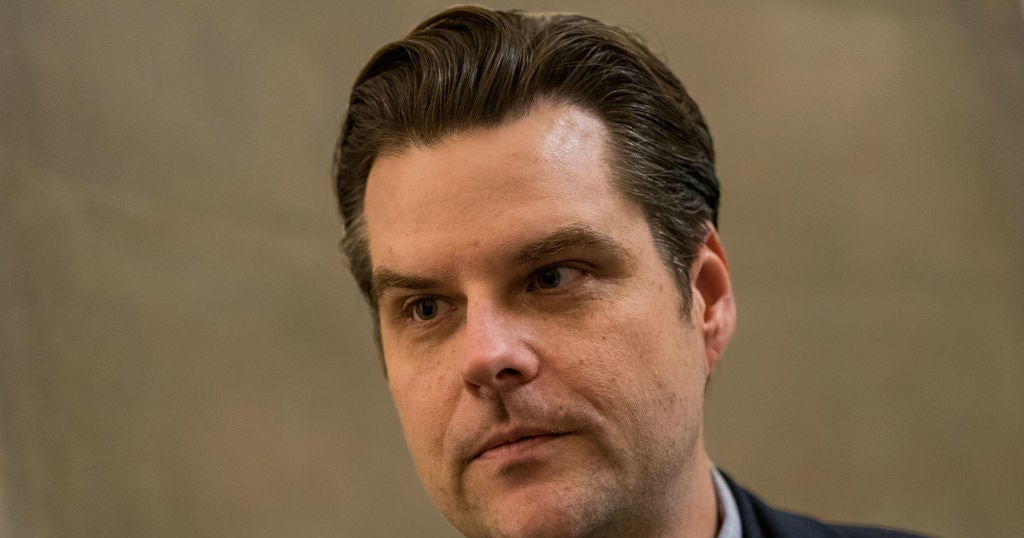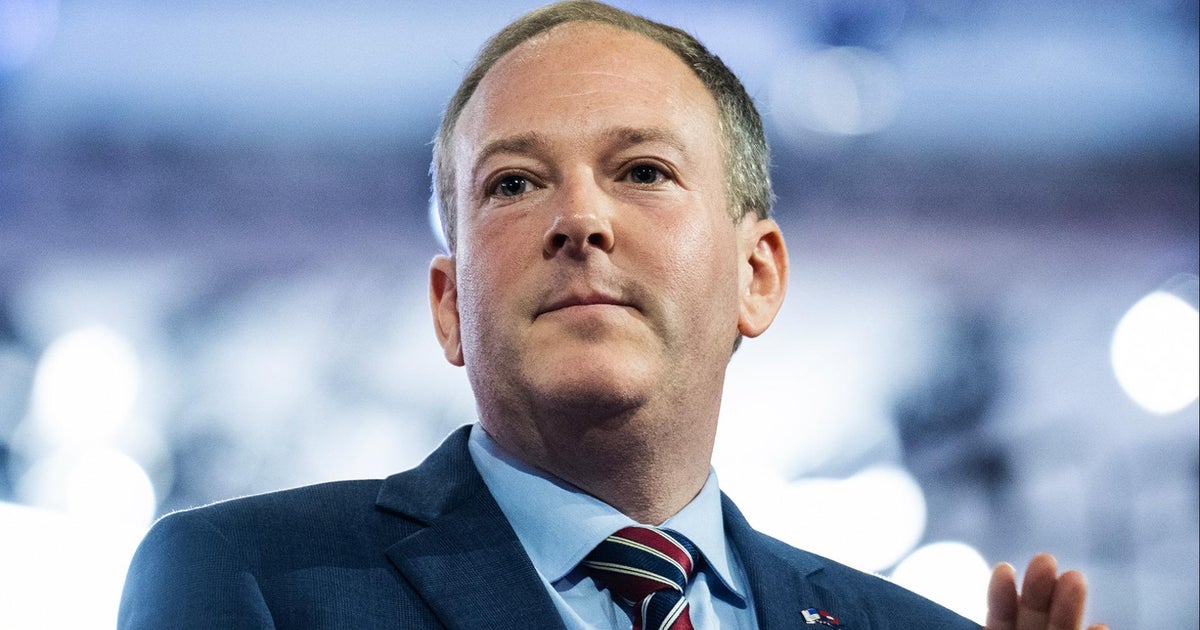CBS News
Severe droughts threaten sustainable catch of the Amazon’s giant fish, the giant pirarucu

Two years of record-breaking drought have dealt a heavy blow to what is arguably the Amazon’s most successful sustainable economy: the managed fishery for the giant pirarucu.
In Brazil´s Amazonas state, almost 6,000 riverine dwellers authorized to fish have reported a sharp drop in production and rising costs. They are demanding aid from the federal government and debating how to adapt to climate change.
Last year’s catch totaled 70% of the government-authorized quota of 100,443 fish. This year could see an even steeper decline, since many communities still haven´t been able to fish. The season runs from June 1 to Nov. 30.
Jorge Saenz / AP
Pirarucu managed fishing began in the Amazon 25 years ago in the Mamiraua region and has since expanded. It helped the Amazon’s largest fish escape risk of extinction and is now an important source of income for locals in 10 sustainable conservation units and eight Indigenous territories, where deforestation is close to zero.
Unlike other aquatic species of the Amazon, such as river dolphins, the pirarucu — also known as arapaima — historically have proven resilient to drought and climate change. But low water levels are making it extremely difficult for fishers to transport their catch from remote lakes to major rivers and onto cities.
It’s a mammoth task. The pirarucu, which can weigh up to 200 kilograms (440 pounds), lives in large lakes that during flood season are often connected to major rivers. Fishing typically occurs when water levels begin to recede, making it easier to trap the fish and transport them out in small boats or canoes. In several areas, however, water levels dropped so quickly that this connection was cut off before fishing could begin.
In the São Raimundo community in the Medio Jurua region, fishing is scheduled to start Saturday, a two-month delay — a common situation this season. As a result, Coletivo Pirarucu, an umbrella organization that represents 2,500 riverine and Indigenous families, has requested that the federal government extend fishing season until the end of January.
Even in large rivers navigation has become problematic, raising costs and uncertainty among fishermen. It usually takes three to four days to transport fish from Carauari municipality — a major pirarucu producer — to Manaus, the Amazon´s largest city. During the peak of the drought, the trip increased to 10 days, and the freight price has doubled.
Tough as pirarucu are, they are not immune to climate change, according to researcher Adalberto Luis Val from the National Institute for Amazonian Research. He says rising temperatures and severe droughts are exacerbating the “death trio” for all fish: warmer water, more CO2 and less oxygen.
The pirarucu has evolved to breathe air but is far from invincible.
“No fish can regulate body temperature,” Val said. “Then there’s water scarcity. As its level drops, you start to get a high amount of suspended material, leading to sludge buildup. It sticks to the gill area, blocking the processes that occur there.”
Fearing deteriorating conditions in the following decades, Coletivo Pirarucu contends that the fishermen should be entitled to compensation for losses caused by climate change. “This crisis not only challenges the resilience of communities but also highlights the urgent need for climate change adaptation and mitigation strategies,” the nonprofit stated in an open letter last week.
In an e-mail response, James Bessa, a federal official overseeing pirarucu management, said that Ibama, Brazil´s environmental agency, is working with other public bodies and local fishing associations to reduce the impact of extreme events like droughts and floods. He said there are plans to start scientific studies and closer monitoring to provide insights into ways to support riverine and Indigenous communities in sustaining their fishing activities.
Adevaldo Dias — a riverine leader who presides over the Chico Mendes Memorial, a nonprofit that assists traditional non-Indigenous communities — argues that adopting additional public policies to help the fishermen is a matter of climate justice.
“The Indigenous and riverine peoples have minimal impact on the environment,” Dias said. “We know that conserving the forest benefits both us and those outside it. And when extreme climate events occur, they are the most vulnerable.”
CBS News
House Ethics Committee planned to vote Friday on whether to release report on Matt Gaetz

The House Ethics Committee, which has been conducting an investigation into sexual misconduct and obstruction allegations against Rep. Matt Gaetz of Florida, scheduled a vote for Friday on whether to release its report, according to three sources with knowledge of the committee’s work.
Hours after President-elect Donald Trump said he planned to nominate Gaetz to be attorney general, Gaetz resigned his congressional seat, effective immediately.
“I do not intend to take the oath of office for the same office in the 119th Congress, to pursue the position of Attorney General in the Trump Administration,” Gaetz said in his resignation letter obtained by CBS News
House Speaker Mike Johnson told reporters that there was about an eight-week period during which Florida Gov. Ron DeSantis could fill his seat by setting the date for a special election.
Now that Gaetz has resigned, it is unclear whether the panel will vote on releasing the report, since Gaetz is no longer in Congress.
There is precedent in Congress on the Senate side for an ethics committee report to become public after a member resigns from Congress, however. In 2011, this happened when Sen. John Ensign of Nevada resigned amid allegations that he tried to hide an extramarital affair.
But it’s not clear that that would apply to the House, leaving open the possibility that the report on Gaetz would not be released.
In June, the House Ethics Committee released a statement saying it was investigating a range of allegations against Gaetz, including sexual misconduct, illicit drug use, and bribery.
Multiple sources at the time told CBS News that four women had informed the House Ethics Committee that they had been paid to go to parties that included sex and drugs, and that Gaetz had also attended. The committee has Gaetz’s Venmo transactions that allegedly show payments for the women.
Gaetz has repeatedly denied wrongdoing and has called the committee’s investigation a “frivolous” smear campaign.
Some of the allegations of sexual misconduct under review by the committee were also the subject of a previous Department of Justice probe into Gaetz. Federal investigators sought to determine if Gaetz violated sex trafficking and obstruction of justice laws, but no charges were filed.
The House Ethics Committee resumed its investigation into Gaetz in 2023, following the Justice Department’s decision not to pursue charges against him.
Gaetz has long blamed then-House Speaker Kevin McCarthy, also a Republican, for the probe. And Gaetz later led the movement to sack McCarthy as speaker.
CBS News
Democratic Congressman on the party’s messaging, focus

Watch CBS News
Be the first to know
Get browser notifications for breaking news, live events, and exclusive reporting.
CBS News
11/13: The Daily Report – CBS News

Watch CBS News
Be the first to know
Get browser notifications for breaking news, live events, and exclusive reporting.








